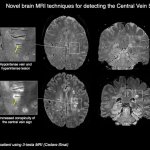
News • Neuroimaging
A clearer picture of Multiple Sclerosis
Cedars-Sinai physician-scientists are pioneering imaging techniques and investigating new biomarkers to improve multiple sclerosis (MS) diagnosis and treatment.

Cedars-Sinai physician-scientists are pioneering imaging techniques and investigating new biomarkers to improve multiple sclerosis (MS) diagnosis and treatment.
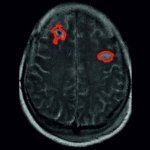
Researchers from Charité – Universitätsmedizin Berlin have shown that massive electrochemical waves in the brain act as a marker announcing an impending ischemic stroke.

Sepsis is the cause of one in five deaths worldwide, killing nearly 11 million people each year, many of them children. It is also a major cause of disability, affecting millions more. To combat the condition, many hospitals have implemented sepsis performance improvement programmes. A meta-analysis of 50 observational studies showed that these programmes are associated with better compliance…
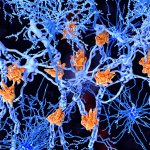
Nerve damage in multiple sclerosis can be detected via the concentration of neurofilament light chain in the blood. This could offer valuable information on future disease course and therapy effectiveness.

Researchers have identified a previously unrecognized key player in cancer evolution: clusters of mutations occurring at certain regions of the genome.
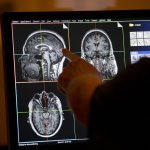
Cleveland Clinic has launched a landmark study to better understand why millions of people around the world suffer from brain diseases, with the goal of pinpointing disease biomarkers early, well before clinical symptoms present themselves.

A connection between the Epstein-Barr virus and multiple sclerosis has long been suspected. A new study provides ‘compelling evidence of causality’.
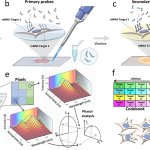
A new biopsy tool will enable scientists and clinicians to simultaneously profile many biomarkers in cells and tissues.
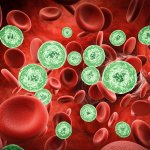
Researchers used artificial intelligence to identify sets of genes that predict whether a patient will acquire severe sepsis.
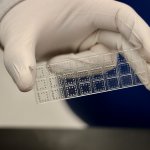
Test could measure patient immunity against multiple COVID-19 variants such as Omicron and Delta at once and inform which synthetic monoclonal antibody to use for treatments.
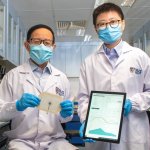
A research team led by Professor Lim Chwee Teck from the National University of Singapore’s (NUS) Department of Biomedical Engineering and Institute for Health Innovation & Technology (iHealthtech), in collaboration with clinical partners from Singapore General Hospital, has developed a smart wearable sensor that can conduct real-time, point-of-care assessment of chronic wounds wirelessly…
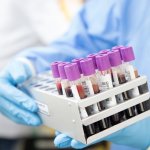
Researchers at the DZNE and the University Medical Center Göttingen (UMG) have identified molecules in the blood that can indicate impending dementia. Their findings, which are presented in the scientific journal “EMBO Molecular Medicine”, are based on human studies and laboratory experiments. Various university hospitals across Germany were also involved in the investigations.
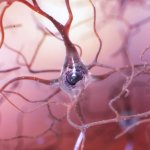
Some blood lipid biomarkers linked to cardiovascular disease risk are also associated with a lower risk of amyotrophic lateral sclerosis (ALS) suggest the findings of a large epidemiology study. ALS is the commonest form of motor neuron disease - a progressive nervous system disease that destroys nerve cells responsible for voluntary movement such as walking and talking.

In a new study, researchers at Lund University and Uppsala University have seen a clear connection between how long a person sleeps and a number of biomarkers linked to cardiometabolic diseases such as cardiovascular disease and type 2 diabetes.

A study by an international research group identified 15 novel biomarkers that are linked to late-onset dementias. These biomarkers are proteins, which predict cognitive decline and subsequent increased risk of dementia already 20 years before the disease onset. The proteins are related to immune system dysfunction, blood-brain-barrier dysfunction, vascular pathologies, and central insulin…

Dr. Hayder Amin and Dr. Caghan Kizil from the DZNE’s Dresden site aim to speed up developing drugs against brain diseases through cutting-edge technology. To this end, they are generating an innovative technology platform, termed “i3D-Markers”, based on high-density microelectrode arrays and 3-dimensional networks of human neurons. Compounds to be tested will be dripped onto this setup, and…
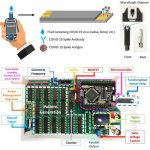
The Covid-19 pandemic made it clear technological innovations were urgently needed to detect, treat, and prevent the SARS-CoV-2 virus. A year and a half into this epidemic, waves of successive outbreaks and the dire need for new medical solutions — especially testing — continue to exist. In the Journal of Vacuum Science & Technology B, researchers from the University of Florida and…

In a recent study by University of Alabama at Birmingham researchers, findings indicate that among patients with heart failure, obesity is associated with a higher risk of heart failure hospitalization or death due to cardiac causes. However, achieving biomarker-based treatment goals in heart failure improves the prognosis for patients irrespective of their obesity status.

Intrahepatic cholangiocarcinoma (ICC) develops within the liver. With one to two cases per 100,000 inhabitants in Germany, ICC is one of the rare diseases overall, but it is the second most common liver cancer. The aggressive bile duct tumour remains clinically inconspicuous for a long time, so that it is often only detected late. Because the tumour also only responds to chemotherapy to a limited…

Researchers from Charité – Universitätsmedizin Berlin and the Francis Crick Institute have developed a mass spectrometry-based technique capable of measuring samples containing thousands of proteins within just a few minutes. It is faster and cheaper than a conventional blood count. To demonstrate the technique’s potential, the researchers used blood plasma collected from Covid-19 patients.…

Engineers at the University of California San Diego have developed a soft, stretchy skin patch that can be worn on the neck to continuously track blood pressure and heart rate while measuring the wearer’s levels of glucose as well as lactate, alcohol or caffeine. It is the first wearable device that monitors cardiovascular signals and multiple biochemical levels in the human body at the same…

Hybrid PET/CT imaging can fully play to its strengths and steer treatment towards more effective procedures for diagnosing prostate cancer. The examination of the specific antigen PSMA with hybrid PET imaging enables treatment monitoring with significantly higher diagnostic accuracy than conventional imaging and therefore, Professor Clemens Cyran believes, will soon become the standard diagnostic…

Prostate cancer is one of the most common cancers among men. Patients are determined to have prostate cancer primarily based on PSA, a cancer factor in blood. However, as diagnostic accuracy is as low as 30%, a considerable number of patients undergo additional invasive biopsy and thus suffer from resultant side effects, such as bleeding and pain.

Blood draws are no fun. They hurt. Veins can burst, or even roll — like they’re trying to avoid the needle, too. Oftentimes, doctors use blood samples to check for biomarkers of disease: antibodies that signal a viral or bacterial infection, such as SARS-CoV-2, the virus responsible for COVID-19, or cytokines indicative of inflammation seen in conditions such as rheumatoid arthritis and…

Our biological or circadian clock synchronizes all our bodily processes to the natural rhythms of light and dark. It’s no wonder then that disrupting the clock can wreak havoc on our body. In fact, studies have shown that when circadian rhythms are disturbed through sleep deprivation, jet lag, or shift work, there is an increased incidence of some cancers including prostate cancer, which is the…